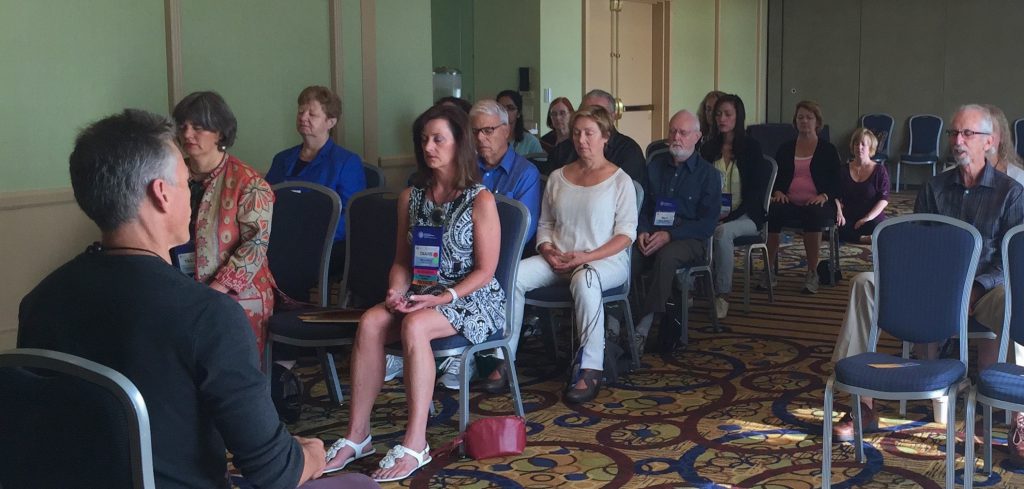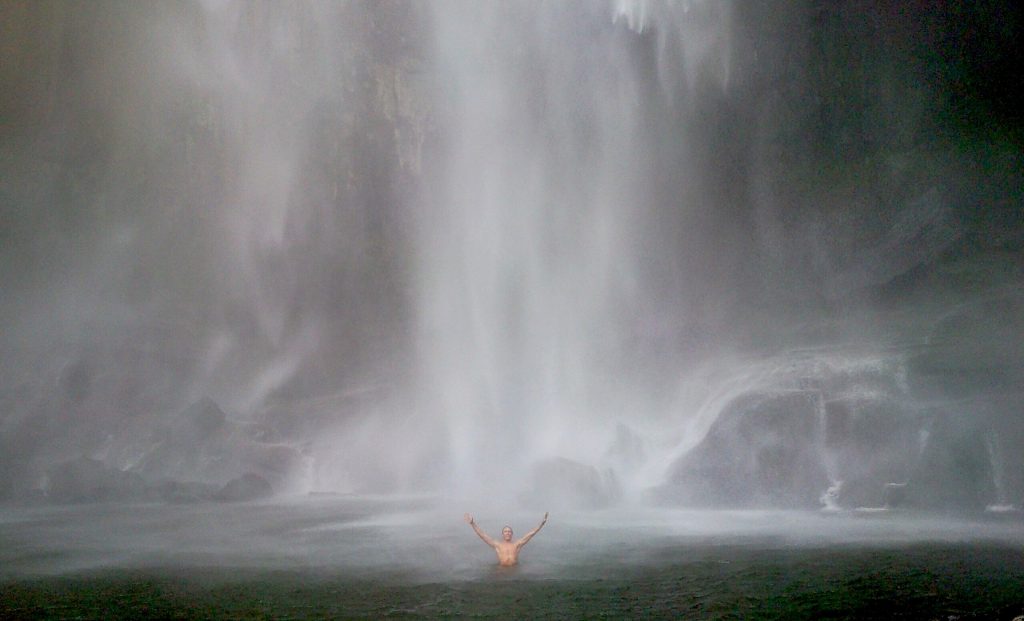
Why Should I Meditate?
One in five of Australians are taking anti-depressant medication, others are drinking too much alcohol, and others are just stressed out. Which might lead us to ask…
Eric Lyleson brings together decades of being in the presence of and learning from some of the most enlightening teachers and spiritual traditions available to help you awakening to your spiritual nature and free you from self-limiting patterns.
Meditation is the practice of turning or minds inward and exercising our ability to focus our attention and be mindful of our inner experience. In doing so we learn how to hold our attention on what we want to be conscious of while learning to let go of the things we would rather not focus on. For example we learn to focus on inner peaceful silence while letting go of worrisome thoughts. I doing so we learn to run our brain, rather than our habitual mindsets running us.
Neuroscience confirms that through repetition our brains actually rewire themselves to work in a way that maximises our inner peace and clarity.


Mindfulness is the practice of living a more conscious life. We apply what we learn in our meditation to every day activities. We practice being fully present with whatever we are doing and bring our minds back from distractions. large components of mindfulness are appreciation and gratitude. To be appreciative is to mindful of the goodness of each moment and to be grateful to be alive. Unconditional acceptance and compassion are other key aspects of mindfulness practice.
Self- Inquiry is the practice of asking ourselves the essential existential and spiritual questions like:
Rather than looking for intellectual answers to these questions, we open our awareness to the direct experience of what these concepts are pointing towards.

This approach to meditation, mindfulness and inquiry is informed by Ken Wilber’s Integral approach that recognises that all traditions and perspectives have something to contribute to our overall understanding and ways of facilitating spiritual and psychological development.
Eric’s primary influences and respective teachers have been:
Buddhism: Jack Kornfield, PhD, Lama Ole Nydahl, Lama Lobsang Tendar and Sogyal Rinpoche
Advaita Vedanta: Adyashanti, Eli Jaxon Bear and Gangaji
A Course in Miracles: Marianne Williamson and Jerry Jampolski, MD
Vision Quests and Nature Spirituality Mike Botkin
Eric has also sought out fellow psychologists who have been integrating Tibetan Buddhism with psychotherapy: Rick Hanson, PhD, Stephen Gilligan, PhD and Daniel Brown, PhD,
Essential Wholeness recognises that everyone has their own unique way of opening to their deepest spiritual nature. Our courses strive to be as jargon and dogma free as possible and instead seek to empower people with methods and understandings that are universal and not limited to any doctrine or belief system.
Spiritual awakening can be a frightening and confusing process. Early in the process people can feel like they are going crazy or that there’s something wrong. Having a guide that understands the psychological, energetic and spiritual dimensions of the process can make a huge difference.


• A lack of meaning and purpose
• Interested in the deeper philosophical questions
• Questioning what you have been taught
• Feeling lost, alone or hopeless
• Noticing the lack of authenticity within yourself or others
• Sensitive to the suffering of the world
• Ready for a change, but not sure what for
• Rather be alone than engage in shallow socialising
• Feeling like you need time out from your life
• Chronic illness that isn’t responding to treatment
• Finding old habits increasingly intolerable
• Chronic anxiety or depression
• Feeling like there is no time to waste
• Wanting to make the world a better place
• Heightened intuition
• Aware of synchronicity
• A sense of Oneness
• More moments of wonder and awe
• You notice when you are not present in the now
• Feeling more open-hearted and grateful
• A sense of peace even in difficult situations

One in five of Australians are taking anti-depressant medication, others are drinking too much alcohol, and others are just stressed out. Which might lead us to ask…
Essential Wholeness Perspective on the Enneagram The anxieties, frustrations, insecurities, resentments or even the simple discontent that drives most people’s lives, are caused by the
Excerpt from Essential Wholeness by Eric Lyleson The more we investigate the nature of our experience the more are able to differentiate fact from
Essential Wholeness is the sum total of what it is to be a human being. We are human and we are being. Our Essential Wholeness

Essential Qualities The Enneagram, and the nine essential qualities, can be used a map to guide us into and through the meditative process. Although meditation

Essential Qualities The Enneagram, and the nine essential qualities, can be used a map to guide us into and through the meditative process. Although meditation